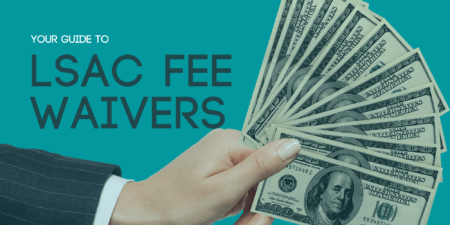The media is on fire lately covering the topic of law school cost. While people differ in the particulars, there is general agreement that law school is currently too damned expensive.
Paul Campos, a law professor at the University of Colorado in Boulder, has pointed out that lawyers going into biglaw in the 1980’s had to pay a little less than 60% of one year’s pre-tax salary to cover the full-tuition cost of going to law school, whereas now biglaw lawyers have to pay something closer to 100% of one year’s pre-tax salary to cover it. So even those in the best-case scenario exiting law school are much worse off than they were several decades ago. This is true even when you factor in that many more students today receive some scholarship assistance to ease the burden.
The question is, what’s to be done about it? To get at the how of fixing law school costs, it’s good to take a hard look at why it cost so much in the first place.
Why Does Law School Cost So Much?
There are all sorts of explanations afloat for why law school costs have gotten so out of hand. One economic argument I actually haven’t heard from news sources (who are quick to blame greed) is that the cost of services tends to rise during periods of economic growth if those services can’t readily be made more efficient. Law school is exactly such a service: generally you still need a professor to be physically present in the classroom teaching a bunch of students. Until students are willing to let a robot or a video teach them, that’s not going to change. Law schools compete with other job opportunities to retain these expensive professors, so as the opportunity to make money elsewhere grows, so does the cost of keeping them in law school teaching you.
This can’t be the full story however: law school costs were going up rapidly even while the economy shrank. Part of it can be attributed to factors that have arguably benefited students: schools compete rabidly to provide the best student experience both in terms of academics and the learning environment. Students could easily be excused in mistaking their law school for an expensive country club. For the whole three years, I went about University of Chicago in awe that any place could be so damn nice. Add to that the growth of clinical programs as well as more intimate classes and it is hardly surprising a bigger price tag comes attached.
However, the biggest factor in law school’s rising cost is likely a simple one: they charge so much because they can. Law schools have access to a student pool who can get all the easy loan money they need to go to law school. Plus loans cover the full cost of tuition and law schools have realized they have the ability to extract more and more of this easy money from each student. As a result, providing a legal education has been extremely profitable for the law schools and the universities that house them.
This last problem at least, seems like something that can be readily addressed. Currently many law schools subsidize less profitable areas of their home university, something that seems extremely unfair in a market where many students are struggling to pay back loans. You can also make a simple fairness argument that law professors and other beneficiaries of the law school system have to absorb some of hit that the legal economy as a whole has taken.
A Solution That Should Be On The Table
Campos and other experts recently proposed some possible fixes for legal educations general woes in an symposium with the New Republic. I’ve covered one the solutions put forward again here in my post on whether law school should be two-years long. These proposals varied in the degree to which they would have an effect on the cost of law of school. It’s my firm opinion that any serious attempt at fixing the problems in legal education should fix the education cost problem.
Campos directly address the cost issue, advocating that the government should merely cut out the Plus loans that cover all of a law student’s tuition costs no matter how high those costs are (students would still be left with Stafford loans, which cover up to 20k). Cutting plus loans would strike right at law school’s ability to extract more and more money from their law students, who are currently allowed to bet too much money on whether they will get a lucrative law job.
Effects of Cutting Out Plus Loans
The effect of cutting out Plus loans would be immediate and dramatic. Probably, a lot of law schools would have to close, an outcome that most disinterested thinkers agree is a good thing.
A possible negative effect is that a law school education would become exclusively available to wealthy people that could afford to pay for an education without financial aid. I think it likely however that law schools would figure out ways to solve this, and likely the first solution many of them would try is reducing the cost of law school considerably. Most schools would have to if they wanted to fill classes.
Also, there are other models that schools could use to tempt students, including lower income students, besides federally funded loans. Though it might strike some as a cousin of indentured servitude, I recently heard someone suggest that school could extend tuition for an agreement with the student to pay a percentage of their income to the school for a fixed periods of years (sorry, I forget who and Google isn’t finding it for me. Maybe Ian Ayres?). The absolutely marvelous beauty of this idea is that law schools, rather than the government and taxpayers, would bear the risk of poor employment outcomes for their own students. If a student can’t pay, the school takes the loss.
It is also hard to see how this system would be any more like indentured servitude for students than the system of non-dischargable debt we already have. The obvious difference between this and IBR, an option under the current system, is who bears the risk of poor employment outcomes- the schools or the government. It would be one way certainly of introducing accountability into a system where there currently is none.
Under a model of receiving a portion of wages, schools that couldn’t assure good employment results would suffer and possibly die, but who would mourn them? If indeed it caused the law student supply to dry up so much that we find we need more lawyers, there are plenty of ways to subsidize their creation in smaller batches than we have now.
You will hear counterarguments, often from financially interested lower ranked law schools, that we need all the lawyers we can get to provide for legal services to the poor. That argument is bogus. With the current over-supply of lawyers there should be all kinds of people willing to extend services to under-served populations. This doesn’t happen to the extent it needs to simply because there is no economic demand for such services (demand by people willing and able to pay for it). That won’t change unless these positions are actually funded by someone who has money, i.e. the government.
Another argument and a true one is that law schools would likely change considerably- possibly for the worse- as they competed to lower cost rather than provide frills. Even some of the core of what we now consider law school- the year of Socratic method, the freedom in choosing electives- might be gouged out. Though significant negative changes might be inevitable, it seems a small risk when considered against the chance to fix an ailing system, one that right now creates a lot of losers to make a few winners.
If I were czar of the universe, I would cut Plus loans substantially tomorrow, provided of course the system went in place whereby you could offer a fair percentage of your wages in return for tuition. Would you? Please feel free to tell me why I am completely and utterly lost in the comments.



